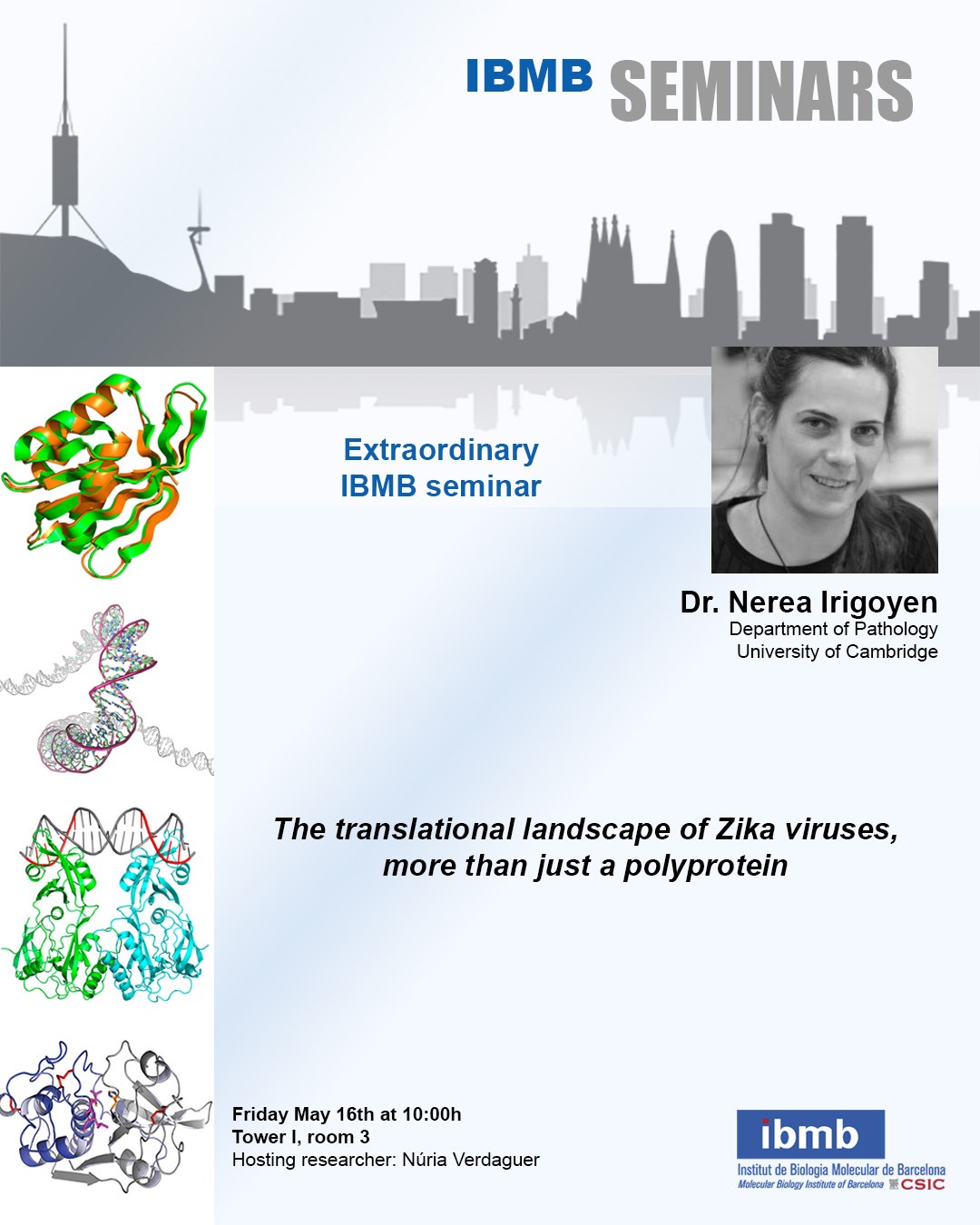Date: Monday, May 5th | Felix Serratosa room | 05|05|2025 Time: 14:30h Speaker: Glòria Casas Saade Lab…
EXTRAORDINARY IBMB SEMINAR, Friday, May 16th 10:00h | Dr. Nerea Irigoyen
Date: Friday, May 16th | Tower I, room 3 | 16|05|2025
Time: 10:00h
Speaker: Dr. Nerea Irigoyen
Department of Pathology, University of Cambridge
Title: “The translational landscape of Zika viruses, more than just a polyprotein“
Seminar Room: Tower I, room 3
Host Researcher: Núria Verdaguer
Abstract
Zika virus (ZIKV), an emerging, mosquito-borne flavivirus, is associated with congenital neurological complications. We have investigated the potential pathological correlates of virus gene expression in representative ZIKV strains through RNA sequencing and ribosome profiling. In addition to the single long polyprotein found in all flaviviruses, we have identified the translation of unrecognised upstream open reading frames (uORFs) in the genomic 5′ region. These uORFs modulates virus growth and tropism in human cortical neurons and cerebral organoids, suggesting a potential role in neurotropism. The discovery of ZIKV uORFs sheds new light on the infection of the human brain cells by this virus and raises the question of their existence in other neurotropic flaviviruses.
Biosketch
Nerea is a Research Group Leader in the Division of Virology (Department of Pathology) at the University of Cambridge. Nerea undertook a PhD in molecular virology at the Spanish National Biotechnology Centre in Madrid (Spain), where she studied the assembly and maturation of the capsid of the infectious bursal disease virus (IBDV). In October 2010, she moved to the Department of Pathology in Cambridge to study non-canonical translational mechanisms in coronaviruses and retroviruses under the supervision of Prof Ian Brierley as a Sir Henry Wellcome Postdoctoral Fellow (Wellcome Trust). During that period, she also applied a technique called ‘ribosome profiling’, a global snapshot of translation, to RNA viruses such as coronaviruses (e.g. MHV-A59), retroviruses (e.g. MuLV and HIV-1), and flaviviruses (e.g. Dengue and Zika viruses). In September 2018, she established her research group to understand how virus protein translation can play a role in viral pathogenicity and disease, focusing on virus-host interactions. Her model systems are coronaviruses (e.g., MHV-A59 and SARS-CoV-2) and flaviviruses (e.g., Zika virus). In 2024, she was awarded a Wellcome Trust-Career Development Award for understanding Zika virus-induced neuropathogenesis and neurotropism.


